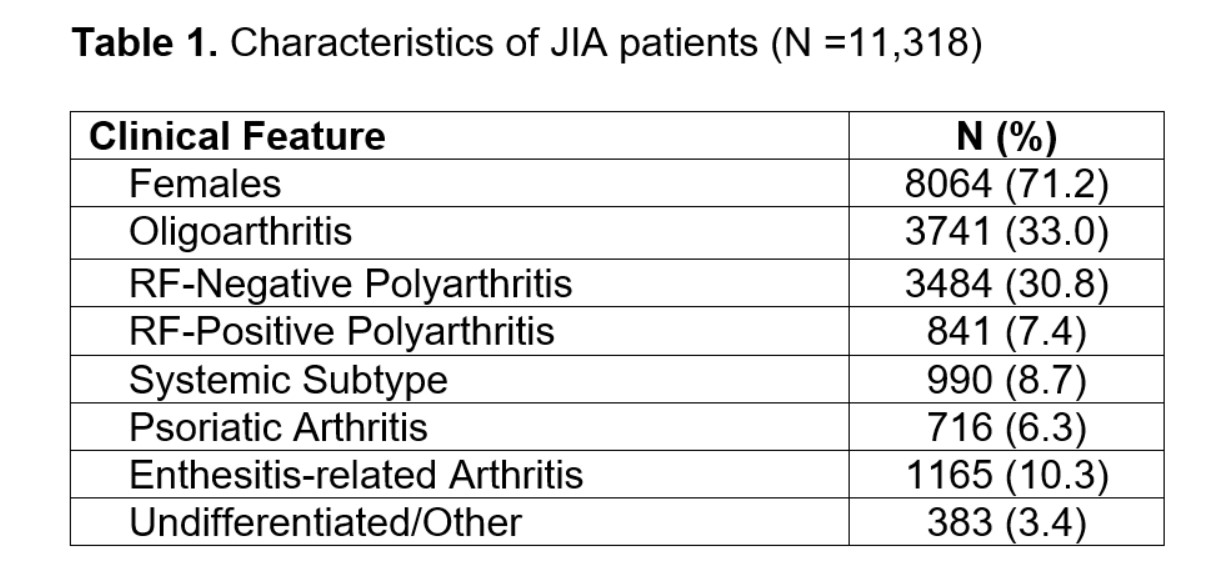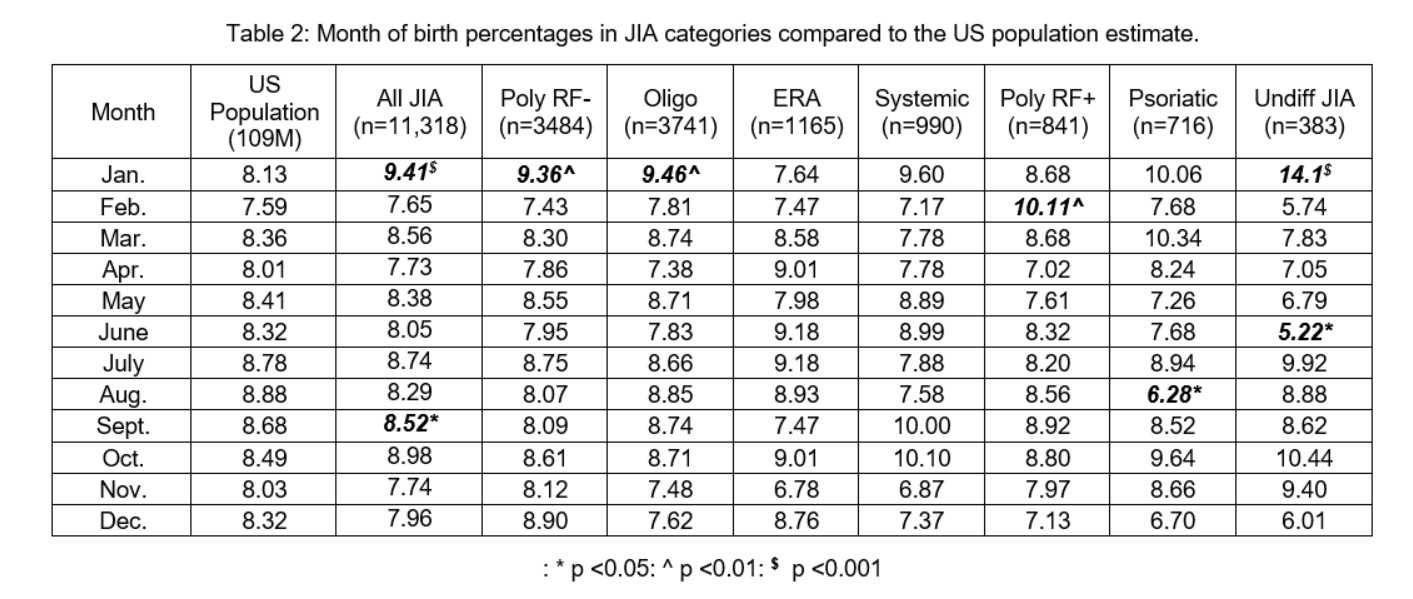Session Information
The 2020 Pediatric Rheumatology Symposium, originally scheduled for April 29 – May 2, was postponed due to COVID-19; therefore, abstracts were not presented as scheduled.
Date: Saturday, May 2, 2020
Title: Poster Session 3
Session Type: ACR Abstract Session
Session Time: 4:15PM-5:15PM
Background/Purpose: Juvenile Idiopathic Arthritis (JIA) is an autoimmune childhood arthropathy influenced by genetic as well as environmental factors. Several autoimmune disorders have been postulated to be influenced by particular seasons of birth. A prior study from Israel of 558 children suggested that JIA also had a seasonality of birth, with births peaking in January. The aim of the present study was to determine if there is an association between the month of birth and the onset of JIA using a large JIA cohort.
Methods: The JIA cohort comprised of 11,318 children enrolled from 65 Childhood Arthritis and Rheumatology Research Alliance Registry sites (Table 1) born between 1990 and 2016. Birth data on 109,066,226 births for the United States population from 1990 to 2016 was obtained from the Centers for Disease Control’s National Vital Statistics Reports. Using a Chi Square goodness-of-fit test, the birth months of the children with JIA were compared to the birth months of the general population. Comparisons of births by individual month were compared to the population value using a two-sided one-sample test for a binominal proportion, where the CDC estimate was treated as the population estimate. Subgroup analysis was performed for JIA categories and gender.
Results: There was a significant difference in month of birth distribution between the cases and the controls. Children with JIA had a significantly increased likelihood of being born in January (9.41% of JIA vs 8.13 % expected, p< 0.001) and a significantly decreased likelihood of being born in August (8.29 % of JIA vs 8.88% expected p < 0.027). JIA females were found to have a significantly increased likelihood of being born in January (p < 0.001), as were males (p < 0.05). Children with oligoarticular JIA, polyarticular RF (-) JIA and undifferentiated JIA were all found to have a significantly increased likelihood of being born in January.
Conclusion: The development of JIA is associated with the month of birth. Specifically children with JIA were more likely to be born in January, and this observation was also true for several JIA categories and for females with JIA. These findings support the hypothesis that seasonal variations, such as exposure to perinatal infections, may contribute to the development of JIA.
To cite this abstract in AMA style:
Estroff B, Dave I, Gergely T, Ponder L, McCracken C, Prahalad S. Impact of the Month of Birth on the Development of Juvenile Idiopathic Arthritis in the United States [abstract]. Arthritis Rheumatol. 2020; 72 (suppl 4). https://acrabstracts.org/abstract/impact-of-the-month-of-birth-on-the-development-of-juvenile-idiopathic-arthritis-in-the-united-states/. Accessed .« Back to 2020 Pediatric Rheumatology Symposium
ACR Meeting Abstracts - https://acrabstracts.org/abstract/impact-of-the-month-of-birth-on-the-development-of-juvenile-idiopathic-arthritis-in-the-united-states/


